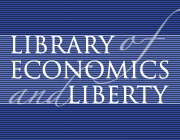Knowledge@Wharton: Nassim Taleb on Living with Black Swans
Nassim Taleb is a literary essayist, hedge fund manager, derivatives trader and professor of risk engineering at The Polytechnic Institute of New York University. But he is best known these days as the author of The Black Swan: The Impact of the Highly Improbable. During a recent visit to Wharton as part of The Goldstone Forum, he spoke with Wharton finance professor Richard Herring — who taught Taleb when he was a Wharton MBA student — about events in the Middle East, the oil supply, investing in options, the U.S. economy, the dollar, health care and of course, black swans.
 Nassim Taleb has been interviewed by James Altucher on his Podcast
Nassim Taleb has been interviewed by James Altucher on his Podcast 
